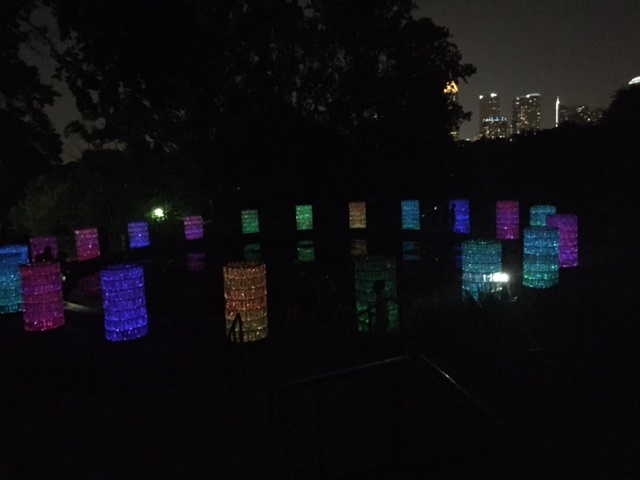Week 10: Case Updates and the Atlanta Botanical Garden
This week, we received some good news on two of our T visa cases. First, our T visa client who was a victim of labor trafficking and was in removal proceedings for entering the country without documents, received a positive decision on the motion we filed on her behalf for administrative closure of her removal proceedings. This means she does not have to go to court for hearings on her removal proceedings until she receives a decision from USCIS on her T visa application. If approved (and we believe it will be!), GAIN will have to help her reopen the removal proceedings so they can be permanently closed because she will have legal status for four years with her T visa. However, it is wonderful that she does not have to worry about being removed from the country or going to court for more hearings while she is awaiting this decision. This is especially true because she is a minor, and this means she can focus on school and being a kid.
The second T visa client for whom we received some good news was the Cameroonian student who came to the U.S. to play soccer at what he thought was a prep school. Later, he found out that the school he saw in the brochures and that was described in his scholarship agreement was a fake. The school had no real curriculum and was in a converted gymnasium without real classrooms or supplies. He and the others students were also housed in terrible conditions, deprived of food and other necessities, and their parents were forced to pay to “fees” to the school director that were never mentioned in their scholarship agreements. On Wednesday, GAIN’s Immigrant Victims of Violence Attorney, Alpa Amin, had a conference call with the client’s Tapestri advocate, the agent from ICE (Immigration Criminal Enforcement) who helped remove the client from the trafficking situation when she investigated the school for visa fraud, and an agent from HSI (Homeland Security Investigations) who conducts human trafficking investigations. Alpa and the client’s Tapestri advocate wanted to talk to these two agents to see how the government will classify situations like this in which an athlete is recruited to play at a school. Because there is not an element of labor while the student is in school, but only the potential for labor exploitation if he or she is recruited by a university, or a later, a professional team, Alpa and the client’s Tapestri advocate worried that the government would not view the situation as trafficking but merely as fraud or at most extortion (because of the school director’s demands for money from the students’ parents). However, ICE agents and HSI agents are aware that this phenomenon of trafficking of athletes occurs quite commonly internationally, and that it happens as well in the United States. In fact, the ICE agent spoke with the NCAA, which told her that they are working to stop exploitation by people who “discover” these young athletes (both internationally and domestically) and earn huge under the table “finders fees” from universities and professional teams. Therefore, both agents confirmed that their departments will treat this case as human trafficking. And in even better news, they said they will help the client apply for “continued presence,” which will allow him to receive a work permit and some public benefits while he is waiting for his T visa application to be processed.
In addition to this two pieces of great news, I also had some fun this weekend exploring Atlanta’s Botanical Garden with one of my William and Mary Law School classmates: Shaïna Baron Salman. I have been wanting to visit the botanical garden since the beginning of my time in Atlanta. I pass it every day on my commute to and from work, and I have heard such great things about it, so I was thrilled when Shaïna and I were able to find a time to go before the end of the summer.
Atlanta Botanical Garden
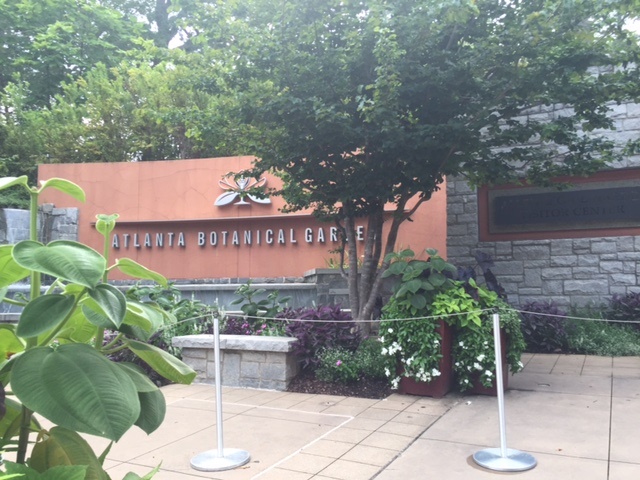
The botanical garden has 30 acres of outdoor gardens, a canopy walk, fountains, and an edible garden featuring a variety of vegetable, fruit, and herb plants. It also includes the Fuqua Conservatory, an organic biosphere displaying tropical palms and conifers, and the Fuqua Orchid Center, which is the “foremost collection of species orchids in the United States.” Additionally, the garden currently is hosting an exhibit of sculptures by the artist, Bruce Munro, that are lit up nightly. Therefore, Shaïna and I went in the evening to take in the garden during daylight, enjoyed some dinner at the garden’s restaurant to allow the sun to set, and walked around the garden again after dark to enjoy the sculptures. Below are pictures of some of my favorite displays and my delicious dinner in the garden.
Garden Fountain
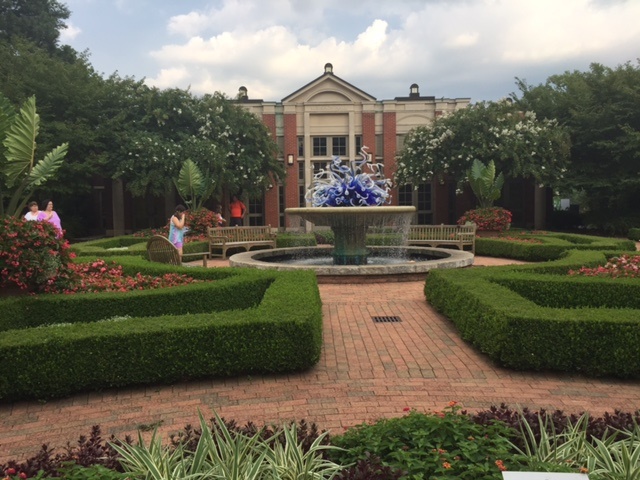
Edible Garden
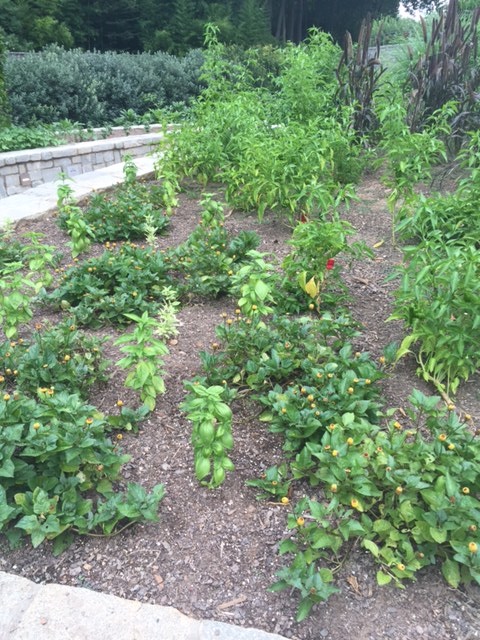
Lily Pads
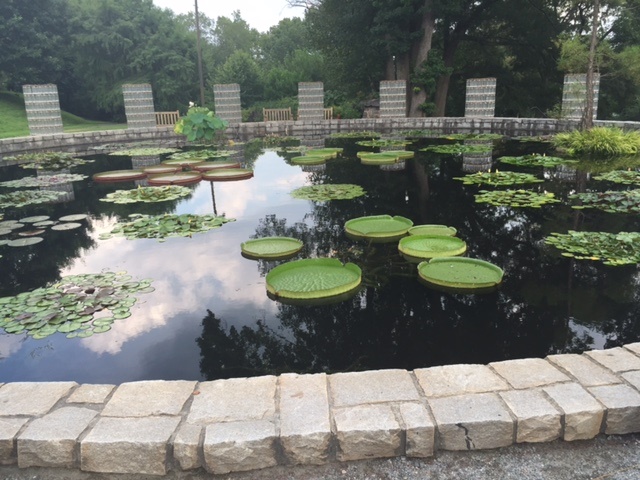
Orchid Room
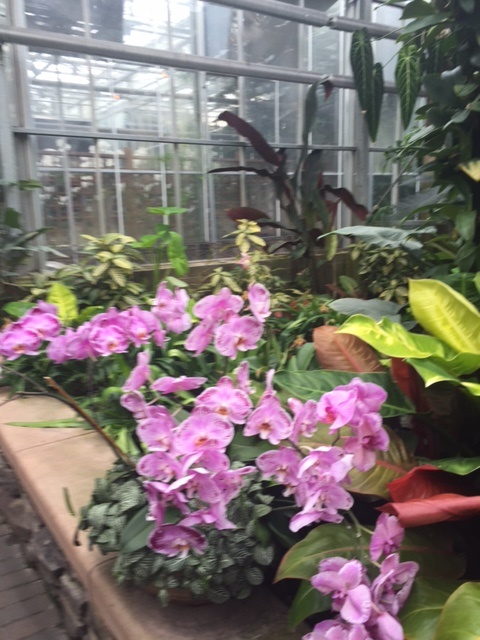
Squiggle Sculptures
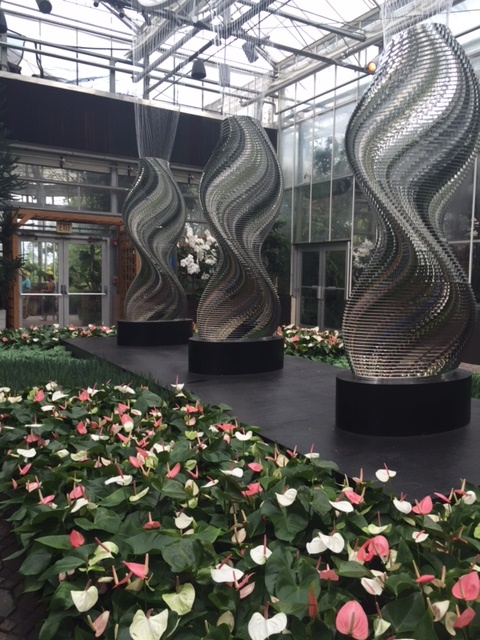
Fuqua Conservatory: Tropical Plants
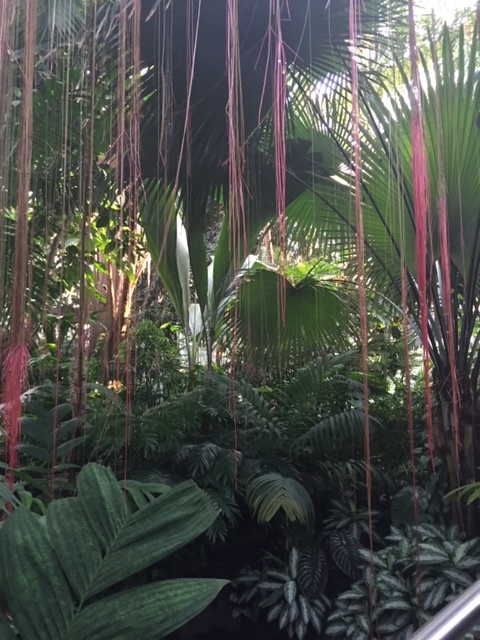
Mountain Trout with Fennel Slaw, Butterbean Succotash, and Lemon Vinaigrette
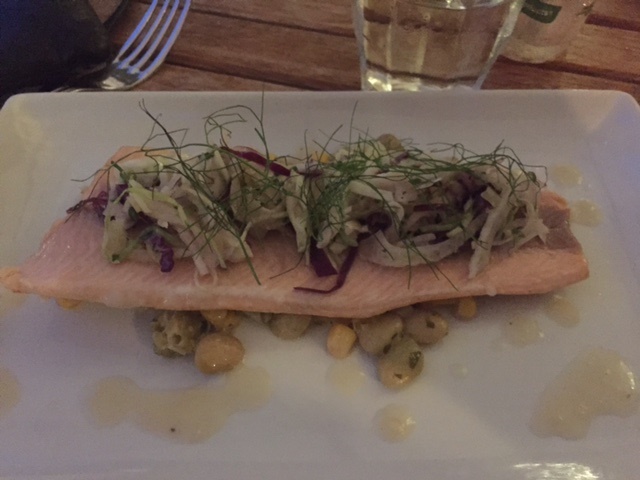
Basil Blueberry Crème Brûlée
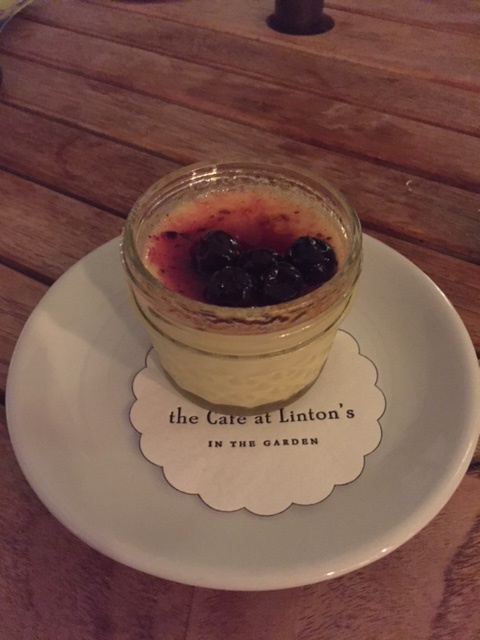
Garden Fountain at Night
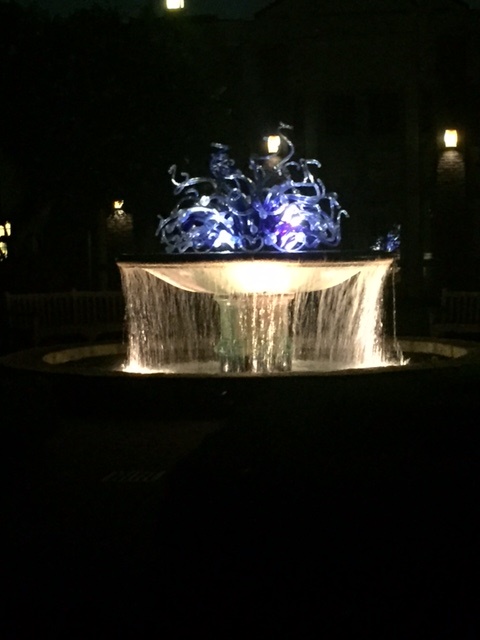
Squiggle Sculptures at Night
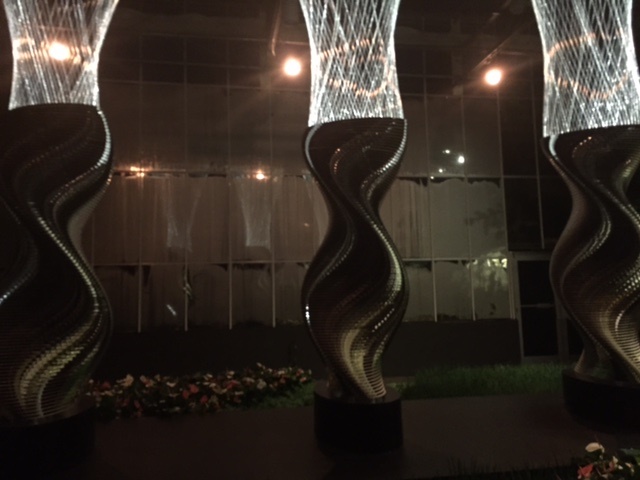
Lighted Bottle Sculpture with the Midtown Atlanta Skyline
